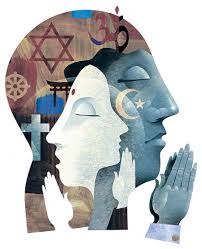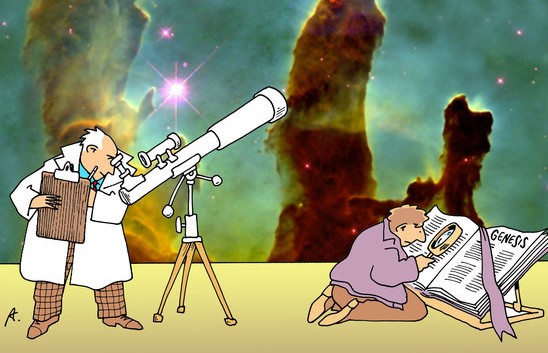Palm Sunday
“Christ Jesus, though he was in the form of God, did not regard equality with God something to be grasped. Rather, he emptied himself, taking the form of a slave….” Philippians 2: 6-7
Many years ago when I was in college, I had a classmate named Jim who distinguished himself as one of the brightest and most intellectually gifted persons I ever knew. He went on to study philosophy in Washington, DC, and then I kind of lost track of him.
Until I got the news.
Jim’s body was found floating in the Potomac River. All of us who knew him were shocked. His professor said he was the brightest student he had ever known.
What happened?
A friend of mine who went to school with Jim in Washington told me that, in cleaning out Jim’s room, he was stunned by the fact that he kept finding notes written in Jim’s handwriting with the same message.
That repeated message contained two questions:
“Who is this God? What is it that He wants?”
Let’s start with the first: “Who is this God?”
You must admit Jesus presents us with a highly unusual version of a deity.
For example, He doesn’t come to us reigning in absolute splendor. He doesn’t Lord it over us with claims of power and majesty. Nor does He require us to bow before Him and spend our days worshipping His absolute majesty. He doesn’t demand fear and trembling as we approach His awesome presence. He doesn’t even want us to call Him Lord and Master.
Instead he presents himself as a God who throws his arms around prodigal sons and daughters, tells the woman “neither do I condemn you,” cries at the tomb of Lazarus, chooses to be born in a manger, washes the feet of his disciples, makes the blind see and the lame walk, cleanses lepers, dines with sinners, feeds the thousands, forgives enemies, heals demoniacs, tells us “Blessed are the poor,” and who calls us to serve the “least of these.”
Or, in the words of Paul in today’s second reading, he’s a God who “emptied himself, taking on the form of a slave” – not just the form of a person, but of the lowest element of society, a slave.
Again, who is this God?
That’s the question Palm Sunday tries to answer.
Palm Sunday teaches us what kind of God it is that we believe in. And it turns out that he’s a God like no other. Today we’re told He’s a God who is unique in all human history.
Notice, for example, that as Jesus enters Jerusalem there are no trumpets blaring, no resplendent carriages proudly proclaiming royalty, no horses bedecked with finery of any kind – nothing that whatsoever demonstrates power or majesty.
Then remember what Paul says in today’s second reading:
He’s a God who “emptied” himself.
And so, Jesus represents a God who modestly rides on a donkey. Jesus symbolizes a God who triumphantly marches in to Jerusalem knowing that his “coronation” ceremony will be one of whips and lashes of humiliation and degradation. Jesus embodies a God who knows that his “throne” will be a cross, whose “glory” will end in his death.
Why does he endure this?
Because that is the kind of God the Father is. That is His nature, His character, His personality.
The reason Jesus humbly and willingly accepts and embraces all this humiliation and torture is to completely identify with the experience of the people with whom God is madly in love.
Jesus shows us that what is in God’s heart is the desire to accompany us, to identify with our hurts and pains and sorrows – a God who is not above us, but with us; a God who is not distant and remote, but near and dear; a God who is not interested in harming us, but only in identifying with our most menial experiences.
Our God sends a message through Jesus in this Palm Sunday celebration that He wants everyone to hear with utter clarity: “Nothing human is abhorrent to me.”
All of life – even sin, even death – is something so precious that God wants to be in solidarity with it. He embraces it … and transforms it.
Palm Sunday, then, is essentially about death.
Jesus marches into this Holy Week seemingly without fear, knowing his death will come soon. He can do so because he knows that death is simply the other side of life. He knows that there is a bigger life, a fuller and richer life. He knows that the Father awaits him.
That’s who our God is.
So, what is it that this same God wants from us?
To put it simply, he wants us to die with him. Only the death he’s talking about for us is not the one that awaits all of us when our earthly time is over.
The death he’s interested in is our dying before dying – the death of our egos; the death of our addiction to wealth and “success;” the death of our desire to see ourselves as better than others. Or, to put it in the words of the Gospel of Luke, our obsession with “self-worship.”
Remember back to the beginning of Lent when the devil tries to seduce Jesus with all these temptations, and more. But Jesus’ response is one that we all need to have written on our hearts:
“The Lord, your God, shall you worship, and him alone shall you serve.”
And when Jesus talks about worshipping false gods, he’s clearly not referring to golden calves. He’s not referring to idols some foreign, ancient power adored.
Instead, he’s referring to our inner craving to make our own selves into the god of our lives. He wants us to end the ultimate illusion: that wealth, fame, and power will fulfill us. He wants us to come to the realization that something much greater, much truer, much richer awaits us all.
So, again: “Who is our God? What is it that He wants?”
The lessons of Palm Sunday give us the answers to both of these questions.
And, perhaps the apostle Paul sums it up as well as anyone could:
“Christ Jesus, though he was in the form of God, did not regard equality with God something to be grasped. Rather, he emptied himself, taking the form of a slave ….”
Our challenge is to go and do the same. Our challenge is to empty ourselves of our false claims to importance and grandeur and become like our God – the God who rode on a donkey.
Ted Wolgamot, Psy.D.
11908194.1
4/11/19






